VNA respectfully introduces the content of General Secretary To Lam's speech at the Lee Kuan Yew School of Public Policy (National University of Singapore).
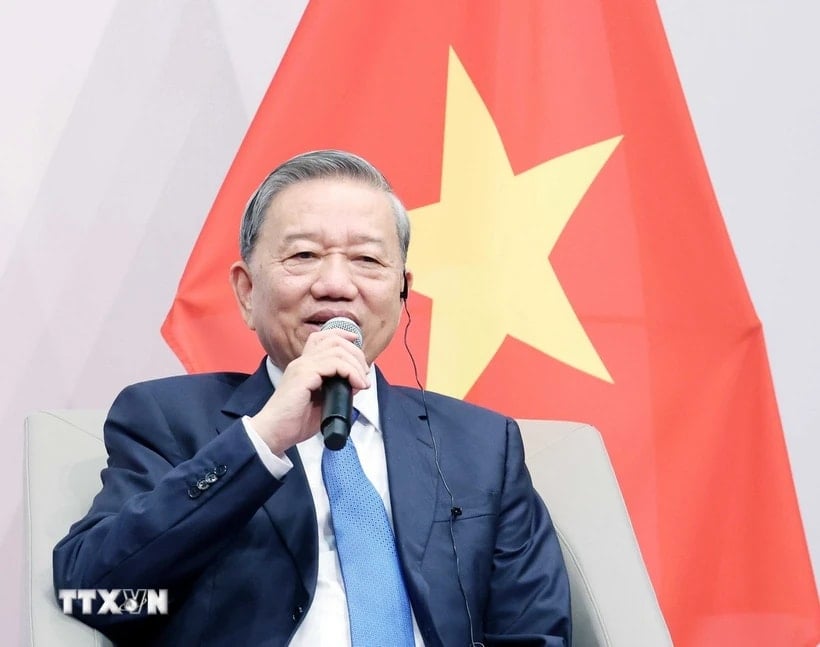
On the afternoon of March 12, within the framework of his official visit to the Republic of Singapore, General Secretary To Lam and the Vietnamese High-Level Delegation visited the Lee Kuan Yew School of Public Policy (National University of Singapore).
General Secretary To Lam delivered a policy speech on “Vietnam's policy on science , technology, innovation and digital transformation development in the new era and opportunities for Vietnam-Singapore cooperation.”
VNA respectfully introduces the content of the General Secretary's speech.
Dear Senior Minister Teo Chee Hean,
Dear Professor Tan Eng Chye,
Dear professors, lecturers and students,
Today, I am delighted to visit the National University of Singapore, one of the leading academic and innovation centres in Asia and the world, which has made important contributions to Singapore's dynamic and sustainable development, from business administration, science and technology, artificial intelligence, medicine, to international research.
I am particularly pleased to meet again Senior Minister Teo Chee Hean and witness the achievements of close cooperation over the years, which have positively contributed to the increasingly comprehensive, profound and effective development of the Vietnam-Singapore strategic relationship.
I would like to thank the Senior Minister for his kind words and deep affection for Vietnam, as well as the warm welcome he gave to me personally and the Vietnamese High-level Delegation.
Ladies and gentlemen,
Singapore's strong development and remarkable achievements are first and foremost a symbol of the aspiration, innovation and strategic vision of the Singaporean people in their journey over the past half century.
From a country with modest area and limited natural resources, Singapore has grown to become one of the world's leading financial, technological and educational centers, a model of prosperous and sustainable development that many countries admire.
That journey not only reflects the mettle and will of the Singaporean people, but is also a strong source of inspiration for many countries in the region, including Vietnam.
International icons such as the Marina Bay financial district, Singapore Seaport, smart urban systems, and advanced underground spaces not only demonstrate remarkable economic development but also show a long-term vision of governance, a scientific and technological nation, and sustainable development.
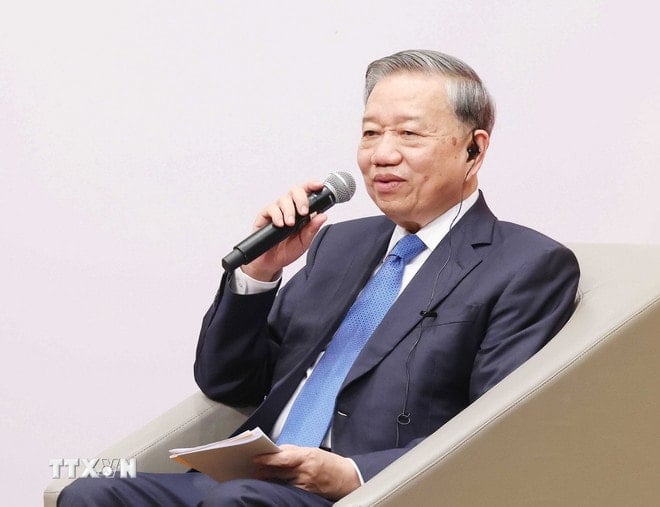
In particular, Singapore is not only strong in physical infrastructure, but also a pioneer in building knowledge infrastructure with prestigious universities and research institutes, playing a leading role in the regional innovation ecosystem. Singapore is recognized by the world as one of the leading countries in digital transformation and building a smart nation.
The Singapore Government initiated the Smart Nation Initiative in 2014 and has achieved impressive results in applying technology to all areas of life and society.
What we admire is not just Singapore's brilliant achievements, but also its strategic thinking and flexible adaptability to global challenges.
You have set ambitious goals such as becoming a leading country in artificial intelligence, digital finance and green development, and pioneering in building a digital economy, digital government and smart cities.
These efforts not only help Singapore strengthen its position but also contribute to shaping the future of Southeast Asia and Asia, opening up great cooperation opportunities for neighboring countries, including Vietnam.
Ladies and gentlemen,
After nearly 100 years under the leadership of the Communist Party of Vietnam, 80 years of founding the country and nearly 40 years of carrying out the renovation process, Vietnam is facing a new historical moment, determined to enter a new era - the era of prosperous development of the Vietnamese people.
The great achievements that Vietnam has attained stem from choosing the right path under the leadership of the Communist Party of Vietnam, with the efforts and determination of the entire nation.
Overcoming many difficulties and challenges, from a country with slave status and devastated by war, Vietnam has regained independence and developed its economy, gradually affirming its position as a dynamically developing economy.
From being isolated, Vietnam today has diplomatic relations with 194 countries, Strategic Partnership and Comprehensive Partnership with 30 countries, including all major countries and all 5 permanent members of the United Nations Security Council. Vietnam is also an active member of ASEAN and more than 70 regional and international organizations, has relations with 224 markets in the continents; recognized by the United Nations as a bright spot in the implementation of the Millennium Development Goals.
With the spirit of independence and self-reliance, self-confidence and national pride, Vietnam is preparing to enter a new era of the nation with the top priority being to successfully implement the two 100-year goals set by the 13th National Party Congress: By 2030, the 100th anniversary of the Party's founding: Vietnam will become a developing country with modern industry and high average income.
By 2045, the 100th anniversary of the founding of the country, Vietnam will become a developed, high-income country. Efforts will be made to overcome the middle-income trap, build a peaceful, unified, independent, democratic and prosperous Vietnam on par with the world powers, and make a worthy contribution to the sustainable development of the world and the region.
Vietnam’s development path cannot be separated from the general trend of the world and human civilization. The above-mentioned noble goals cannot be realized without pure international solidarity, valuable support and effective cooperation from the international community. We will continue to promote the cause of Renovation, opening up, and comprehensive and extensive international integration. Vietnam will continue to be a stable, trustworthy and attractive destination for foreign investors, businesses and tourists.
The way for Vietnam to overcome the middle-income trap is science, technology, innovation and digital transformation, by arousing the will of self-reliance, self-confidence, self-reliance, self-reliance and national pride, by maximizing the strength of national solidarity combined with the strength of the times.
Ladies and gentlemen,
We are living in the midst of unprecedented rapid changes in the digital age. The Fourth Industrial Revolution with breakthroughs in artificial intelligence, Big Data, the Internet of Things… is reshaping the way we live, work and connect.
In that context, I would like to share with you three main contents: (1) Vietnam's strategic vision on science, technology and innovation. (2) Our philosophy on cooperation and development in the digital age and (3) Lessons from Vietnam-Singapore cooperation and the long-term significance of this relationship.
Vietnam has identified science, technology and innovation as key drivers for national development. Decades ago, we considered science and technology a top national policy - a strategic pillar for the country's industrialization and modernization. Today, in the context of globalization and increasingly fierce competition, this is more true than ever. We clearly understand that a nation that wants to be strong and prosperous must be based on knowledge and innovation.
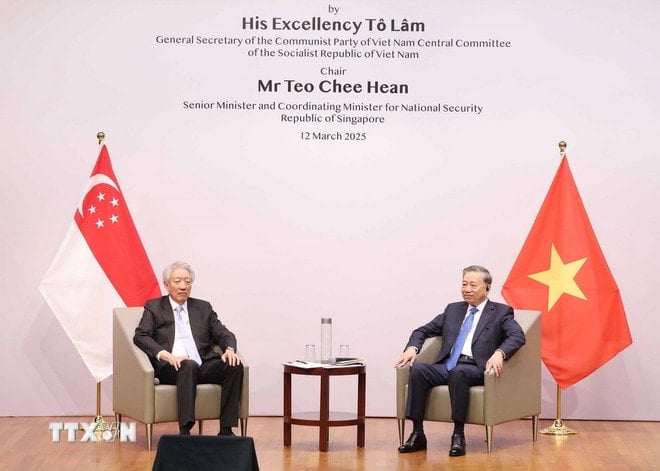
Vietnam's goal is to become a modern industrialized country by 2030 and a developed country with high income by 2045 - the 100th anniversary of the founding of the country. To achieve these goals, there is no other way than to promote the development of science and technology, innovation and implement the national digital transformation strategy. This is the "golden key" to help our country overcome the middle-income trap, avoid the risk of falling behind and catch up with the times.
Developing science and technology, innovation and digital transformation are not optional choices, but are vital paths to realizing national aspirations.
Throughout the development process, science and technology have always accompanied the country and people of Vietnam, achieved many achievements and made great contributions to the process of building, developing the socio-economy and enhancing the position of Vietnam. The potential and level of science and technology of Vietnam are constantly developing [1].
Science and technology have contributed to improving agricultural labor productivity, making Vietnam the world's leading exporter of rice and some key agricultural and aquatic products.
Science and technology factors contribute over 30% of added value in agricultural production and 38% in plant and animal breed production.
Vietnamese scientists have gradually mastered technologies in fields such as hydropower, oil and gas, shipbuilding, satellites, remote sensing, medicine and vaccines.
Social sciences and humanities have provided arguments for planning policies and strategies for national development, perfecting laws, creating premises for economic thinking innovation, affirming the history of national formation and development, and preserving Vietnamese value systems and cultural identity.
Despite achieving some important achievements in science and technology, Vietnam is facing increasingly fierce challenges from the global technological revolution, posing urgent requirements for innovation in governance models, policies and national development strategies.
Big-power competition is fragmenting the global technology market, creating barriers to trade and technology transfer.
Developed countries invest heavily in research and development (R&D), STEM education [2] and digital infrastructure, while many developing countries still face difficulties in accessing new technologies, are overly dependent on imported technologies, and lack the capacity to localize and develop core technologies.
The "brain drain" occurs when talented scientists from developing countries move to work in developed countries.
Faced with this situation, Vietnam has taken a comprehensive, serious and objective look at the shortcomings and limitations to have strong, strategic and revolutionary policies and decisions to create new momentum and breakthroughs in science and technology development, innovation and digital transformation, bringing the country to develop strongly in the new era - the era of the Vietnamese people's rise.
I would like to share some specific perspectives and approaches as follows:
Firstly, Vietnam identifies the development of science, technology, innovation and national digital transformation as the top important breakthrough, the main driving force to rapidly develop modern productive forces, perfect production relations, innovate national governance methods, develop the socio-economy, prevent the risk of falling behind, and bring the country to breakthrough development and prosperity.
Second, strengthen the comprehensive leadership of the Party, promote the combined strength of the entire political system, the active participation of entrepreneurs, enterprises and the People in the development of science, technology, innovation and national digital transformation. Identify this as a profound, comprehensive revolution based on all fields; implemented resolutely, persistently, synchronously, consistently, and long-term with breakthrough, revolutionary solutions. People and enterprises are the center, the main subject, resource, and driving force; scientists are the key factor; the State plays a leading, promoting, and creating the most favorable conditions for the development of science, technology, innovation and national digital transformation.
Third, institutions, human resources, infrastructure, data and strategic technology are the core and central contents, in which institutions are the prerequisite, need to be perfected and go one step ahead. Innovate the thinking of law-making to ensure management requirements and encourage innovation. Focus on ensuring high-quality human resources for science, technology development, innovation and national digital transformation; have special mechanisms and policies on talent.
Developing infrastructure, especially digital infrastructure and digital technology on the principles of "modernity, synchronization, security, safety, savings and efficiency"; enriching and maximizing the potential of data, turning data into the main means of production, promoting the rapid development of big databases, data industry and data economy.
Fourth, develop rapidly and sustainably, gradually become self-sufficient in technology, especially strategic technology. Maximize Vietnam's potential and intelligence by quickly absorbing, assimilating, mastering and applying the world's advanced scientific and technological achievements; promote applied research, focus on basic research, move towards self-sufficiency and competition in technology in a number of areas where Vietnam has demand, potential and advantages.
Fifth, ensuring national sovereignty in cyberspace; ensuring network security, data security, and information security for organizations and individuals are consistent and inseparable requirements in the process of developing science, technology, innovation, and national digital transformation.
Ladies and gentlemen,
In 2003, the late Prime Minister Lee Kuan Yew shared with Singapore university students: "What Singapore has achieved is the result of our country pioneering and maximizing the opportunities brought about by changing technology and global production models."
This reflects Singapore's philosophy of continuous innovation under the leadership of the People's Action Party (PAP) over the past 60 years, despite having few natural resources, Singapore has found its path to development through science, technology and innovation.
This is also the path that Vietnam is determined to take to bring the country to strong development in the new era.
In the context of globalization and increasingly deep economic integration, scientific and technological cooperation is a key factor and foundation to strengthen the strategic cooperative relationship between Vietnam and Singapore.
Vietnam and Singapore have many similarities and complement each other. Singapore has strengths in advanced technology, management experience and investment capital; while Vietnam has advantages in abundant human resources, a large market and great development potential. This is a solid foundation for mutually beneficial cooperation.
With that in mind, I would like to propose some key areas in which our two countries can promote cooperation in the coming time:
Firstly, strengthen cooperation in scientific research projects between Singapore and Vietnam to open up opportunities for knowledge and technology exchange. Promote extensive and comprehensive cooperation between research institutes and universities that meet international standards, exchange experiences and professional resources, especially in areas where both sides have strengths such as artificial intelligence, digital technology, big data, and telecommunications. This combination should aim to solve practical problems common to both countries as well as each country.
Second, innovation cooperation to exploit and complement each other's strengths to create breakthrough values. Singapore, with its dynamic startup ecosystem, advanced technology research centers and stable legal environment, has created a foundation for the development of many breakthrough technology initiatives.
Meanwhile, Vietnam has a young, enthusiastic workforce and a booming domestic market in demand for digitalization and public service improvement. This cooperation not only opens up opportunities for technology exchange and experience transfer, but also promotes the implementation of pilot projects in digital transformation (specifically in areas such as Fintech, smart cities, digital healthcare, and online education, etc.). Through this, the two countries can together create a sustainable innovation ecosystem, contributing to improving competitiveness and economic development in the context of regional and global integration.
Third, Singapore, with its success in digital transformation and the application of technology in urban management, has built advanced traffic, energy and cybersecurity management systems, creating an effective smart urban model. Meanwhile, Vietnam is striving to promote digital transformation in administrative management, promptly meeting the growing needs of its people. This cooperation not only allows Vietnam to learn from Singapore's experience and technology, but also helps both sides research, test and deploy digital solutions to improve the quality of life and enhance the efficiency of public administration.
Fourth, cooperation in developing human resources in science and technology between Singapore and Vietnam aims to promote the transfer of advanced technology between the two countries. Singapore, with its internationally-standardized training and research system, can share educational models, specialized training programs, and management practices.
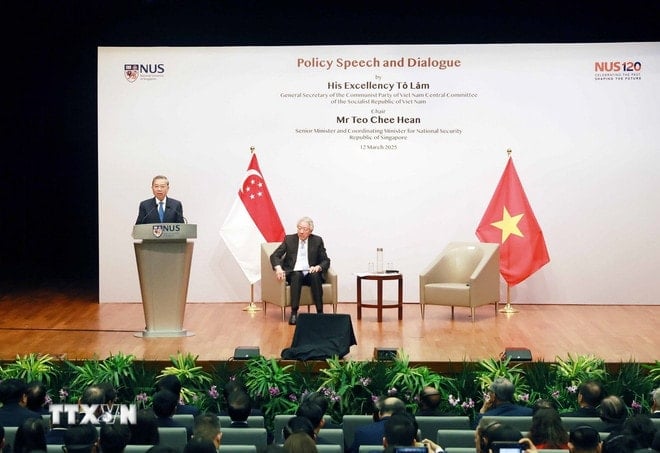
Fifth, promote cooperation in technology transfer and commercialization of scientific research between Vietnam and Singapore, in order to promote the technology transfer process, create conditions for the development of new products and services based on scientific research, thereby enhancing the competitiveness of Vietnamese and Singaporean enterprises in the global market.
In the context of a rapidly changing world, science, technology, innovation and digital transformation are increasingly playing a pivotal role in all fields. Continuous human creativity is the key to opening the door to future breakthroughs and progress. As the powerful message shared by the late Prime Minister Lee Kuan Yew "There are no limits to human creativity and the capabilities of technology."
I firmly believe that you, the talented young generation of the National University of Singapore, with your intelligence, enthusiasm and desire to learn, will continue to be the leaders in this technological revolution.
Dear Sir or Madam,
History has shown that the future belongs to those nations that cherish great aspirations and work together for the common good. Vietnam enters the new era with the mindset of a resilient, strong, aspirational nation, ready to connect and cooperate for development goals. We value our cooperative relationship with Singapore and other friendly countries; and will continue to make positive contributions to building a cohesive, creative and prosperous ASEAN.
I am confident that with strategic vision, strong political determination and a spirit of deep cooperation, Vietnam, Singapore and other countries in the region will reach even greater achievements in the future. Together, we will continue to write the success story of Southeast Asia in the 21st century - a Southeast Asia that is constantly innovative, economically and technologically self-reliant, and sustainably developed for the happiness of the people.
Once again, thank you very much for your attention. May the Vietnam-Singapore friendship continue to develop deeply, sustainably and effectively. May the National University of Singapore continue to reap many achievements, and may you, the delegates and students, be healthy and successful.
Source: https://daidoanket.vn/toan-van-bai-phat-bieu-cua-tong-bi-thu-tai-truong-chinh-sach-cong-ly-quang-dieu-10301446.html




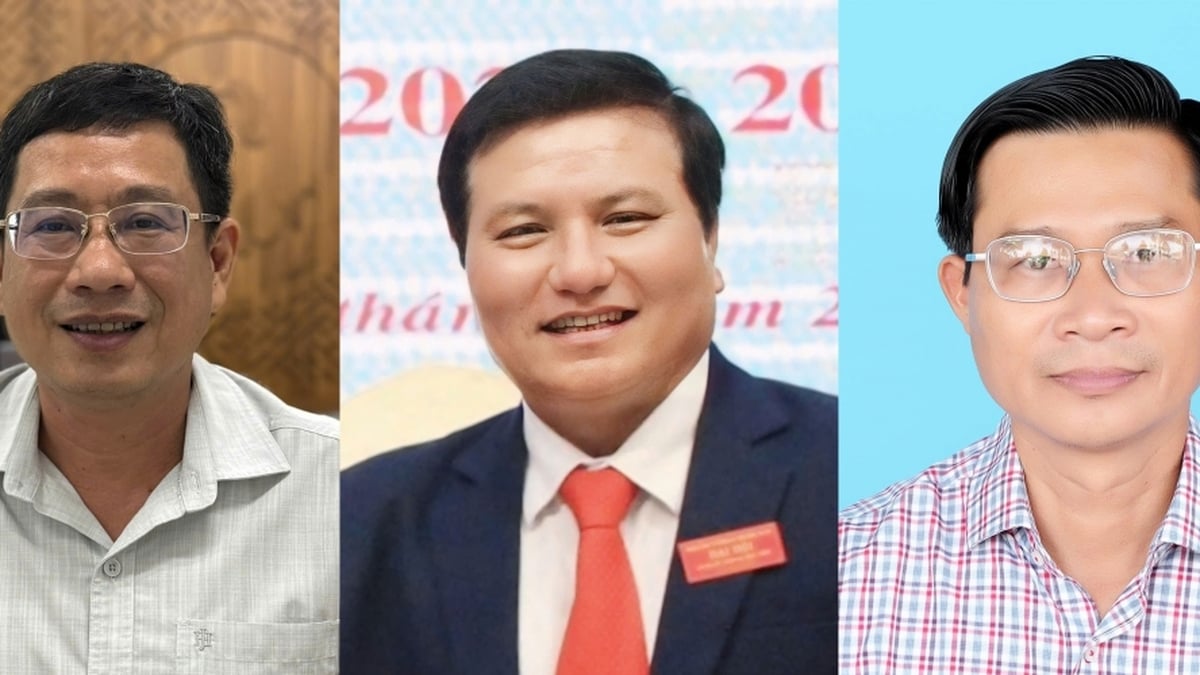

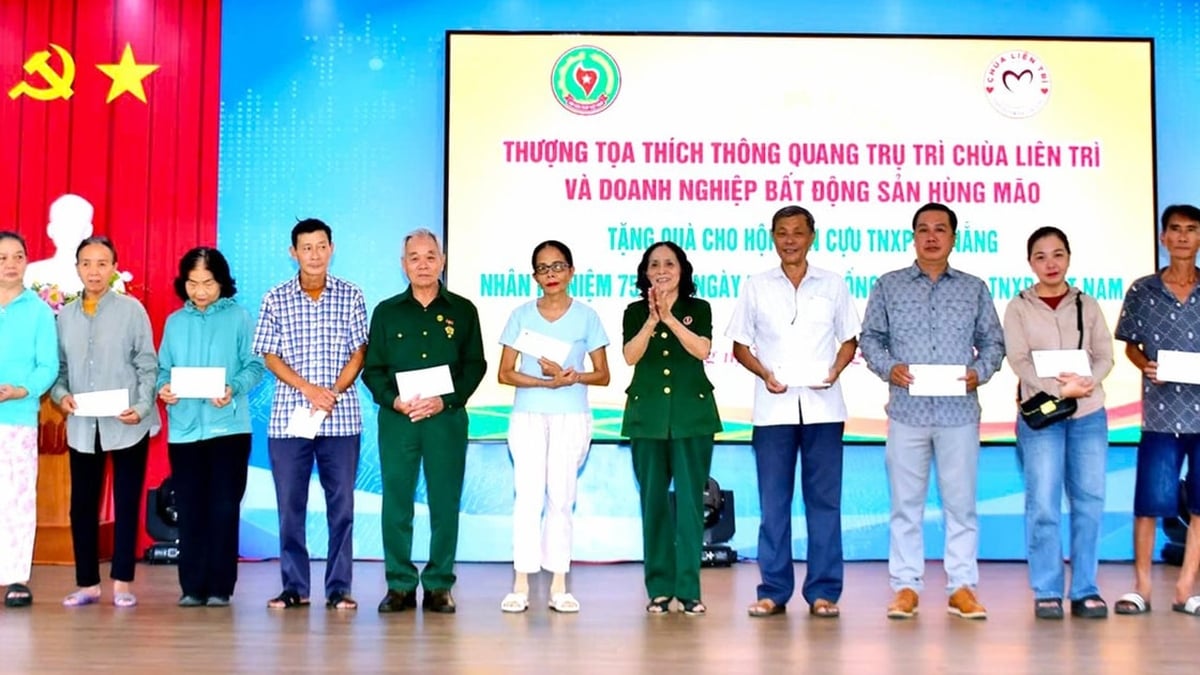



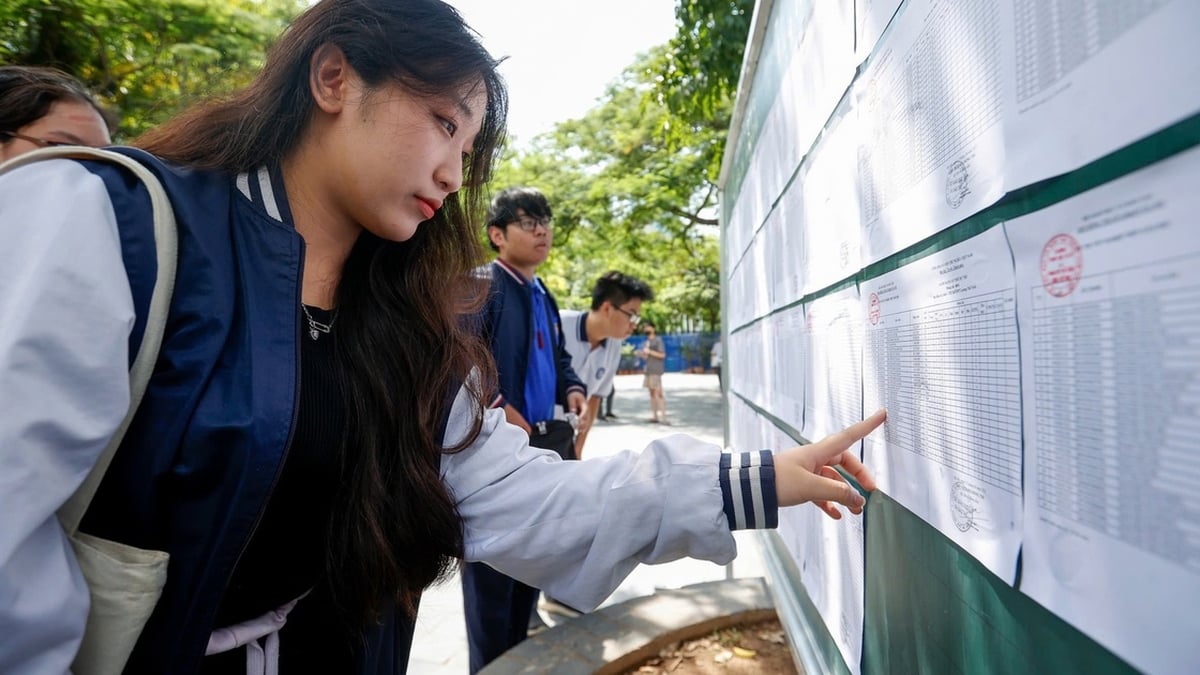
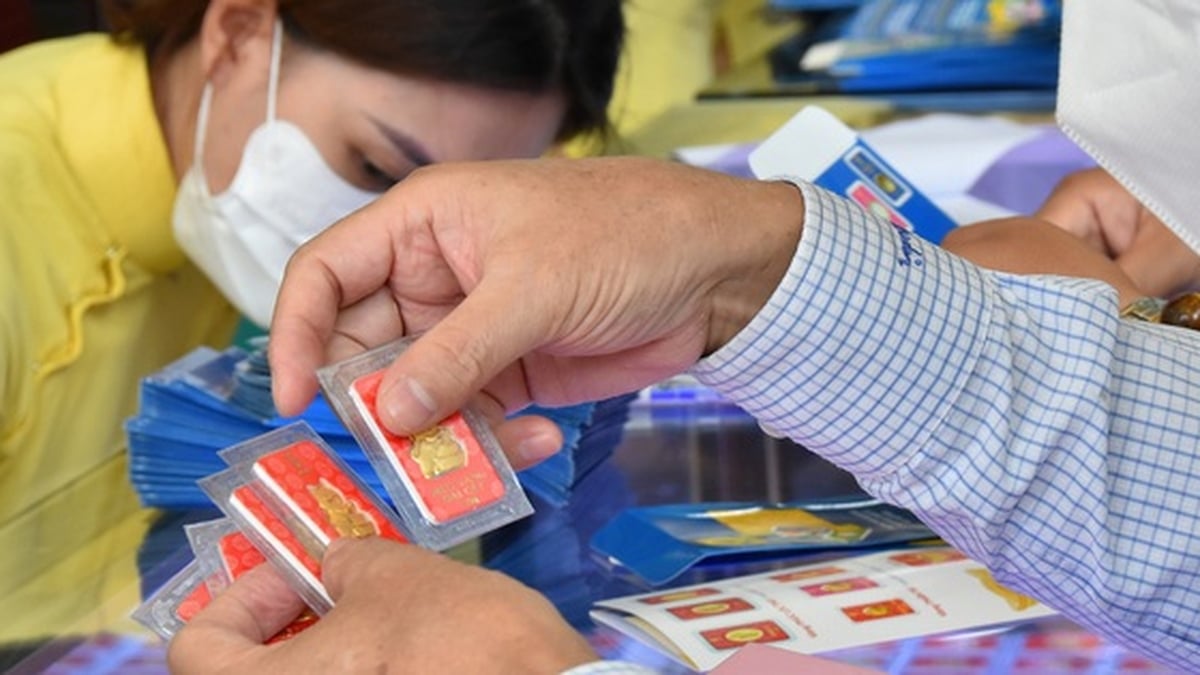
























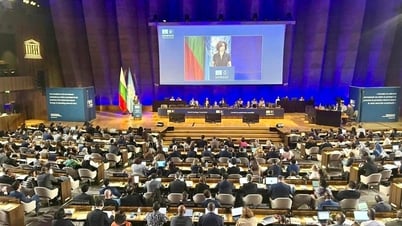
















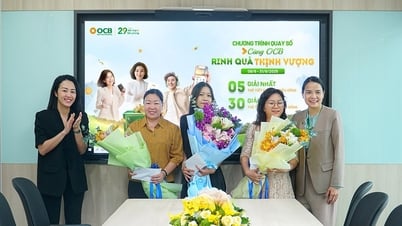



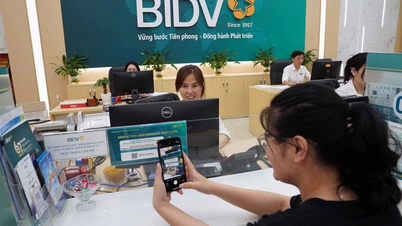

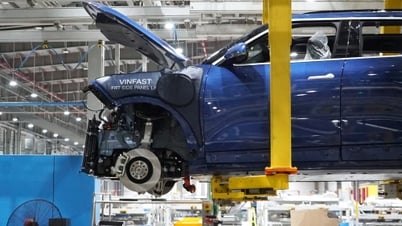



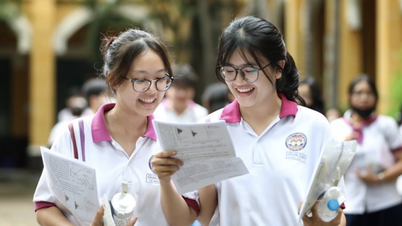



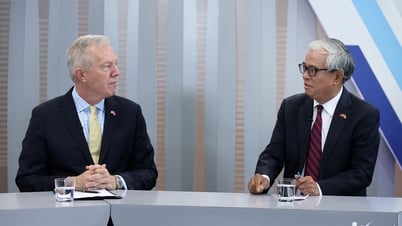
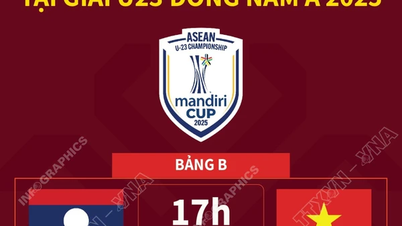

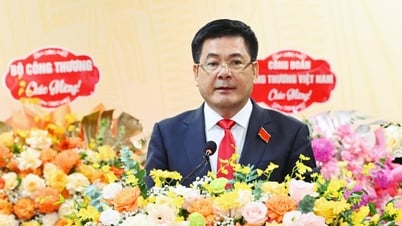

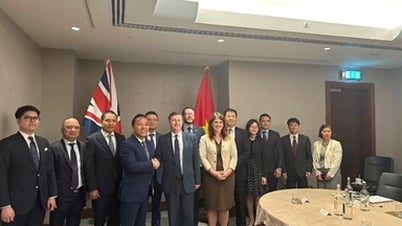



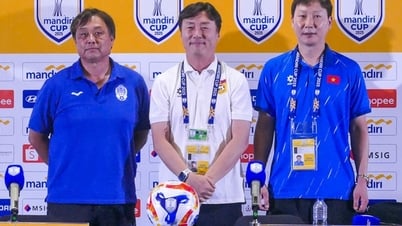
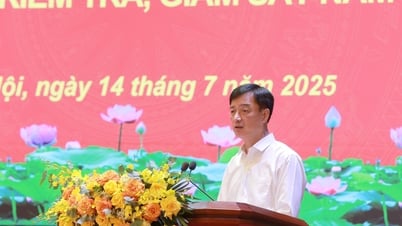
























Comment (0)